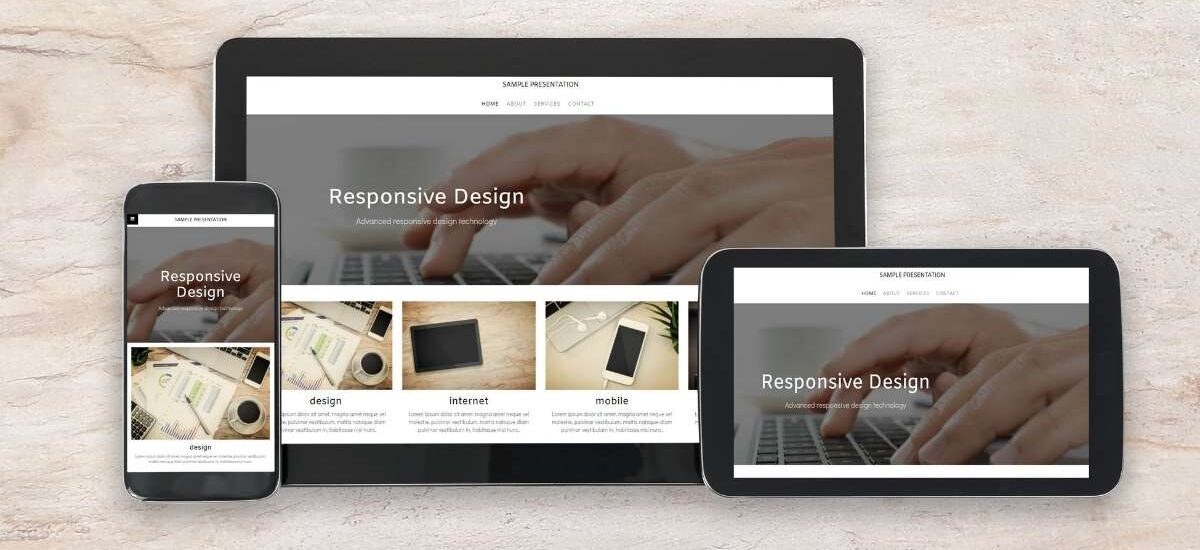Why do you need a responsive website for your business?
Today it is laughable for any serious company not to have a website. The internet has taken center stage in the lives of more than half of the world’s population.
It has become a basic need for businesses as they leverage digital marketing to reach this broad market, drive sales, and increase revenue.
While many enterprises have websites, many forget to observe web design trends and adjust their online presence accordingly.
For instance, according to Statista, 92.6% of the global internet population use mobile devices to access the internet. As such, it is your responsibility as a business owner to design websites for mobile devices.
Responsive web design is about creating websites that look good on all devices. It involves designing a website that adapts to different screen sizes, resolutions, and platforms.
In this article, I’ll give you 5 main reasons why your business needs a responsive website.
Let’s dive in.
1. To Serve Mobile Users
When the internet made its way to the mainstream media, it was a reserve for well-off individuals and developed countries.
Over the next few years, it expanded slowly, but it wasn’t until the invention of the smartphone that we saw its true growth potential. People needed to access the internet at any time, from any place. The smartphone gave a solution.
Today, more users access the internet through mobile phones than other devices.
Statista claims mobile devices (excluding tablets) generated 54.8% of global web traffic, consistently hovering over 50% since 2017.
So, why do you need a responsive website?
With tablets included, there is a big chance that most of your customers discover your business through a mobile device.
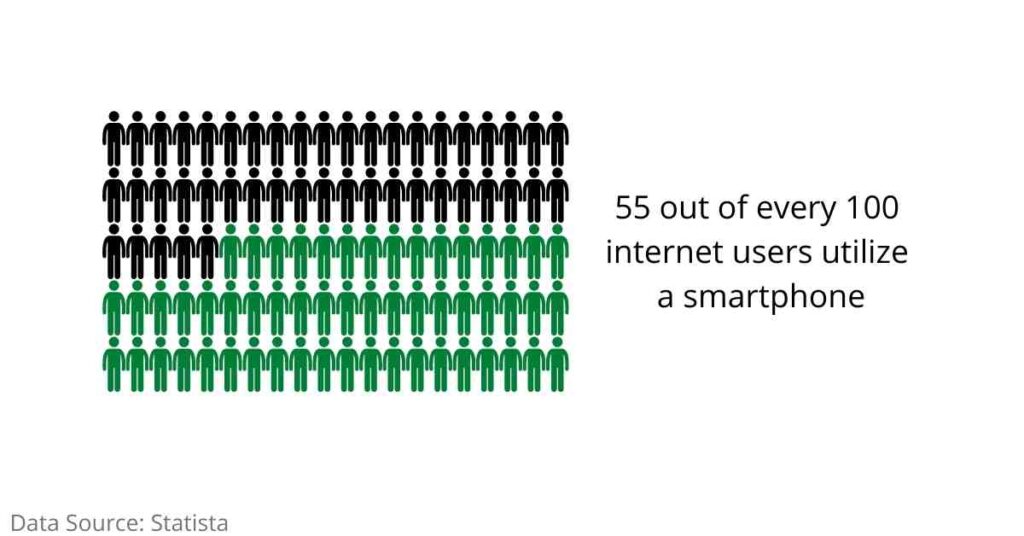
Take a look at your website analytics; I believe your smartphone traffic likely topples desktop computer traffic.
Making an effort to provide a responsive website means that you care about your smartphone-based visitors. It means you are committed to solving their challenges despite their location or time.
The growing trend of smartphone users is not stopping soon, and power has shifted from business to customers. If your products and services are hard to see on mobile devices, you’re losing out on many opportunities.
Offspring, a footwear ecommerce company, migrated its site to responsive design. They realized a 25.59% increase in organic traffic and 102.58% growth in mobile/tablet revenue.
If all you needed to double your revenue was to build a responsive site, how fast would you take that initiative? Sooner than yesterday.
2. It Offers Great User Experience
Following the tremendous growth of the internet due to the proliferation of smartphones, web developers had one major challenge; improving user experience.
Applications were developed to offer better UX for mobile phone users.
But the cost of building and managing functioning mobile apps can be discouraging for many small businesses. Hence, we are left with the option of making our websites mobile-friendly.
That’s why you need a responsive website.
In every 100 visitors to your website, 88 will leave your site if it offers a bad user experience and will most likely never return.
Most of your customers could be smartphone users. When they need a service or a product, they’ll do a Google search on their phones, discover your business website and proceed to make a purchase or visit your shop.
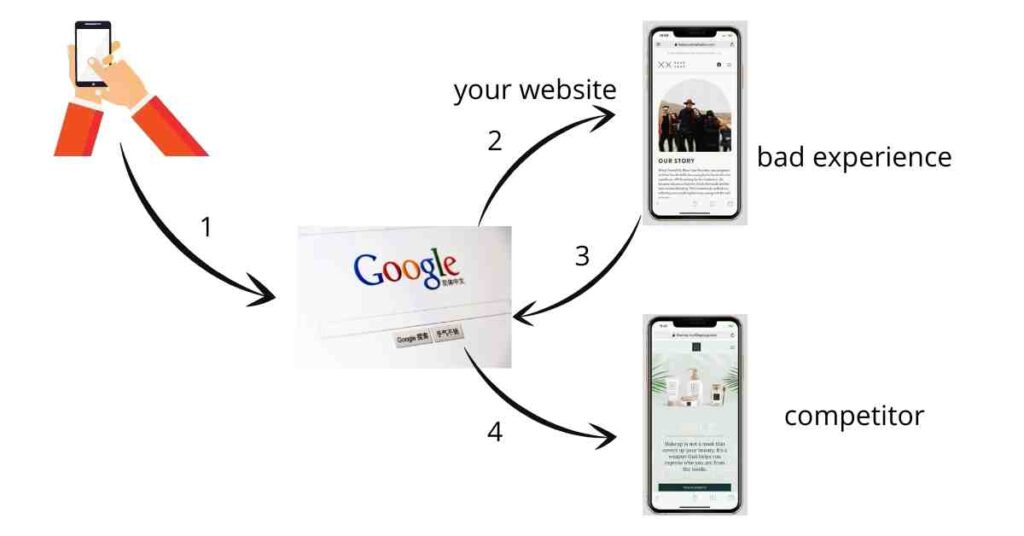
Shouldn’t you offer a great experience with your website?
Don’t you want more customers?
At Glivers, we believe a responsive website is the foundation of great smartphone UX for a number of reasons:
- Website content adjusts well across many devices.
- Multimedia content performs well to appeal to visual desires.
- Navigation is enhanced to encourage visitors to stick around for long.
Giving your visitor a great time on your website improves their chances of them taking you up on your CTAs.
A top chimney service firm implemented responsive web design to offer a better user experience across many devices.
The firm saw a 15% reduction in bounce rate, more time spent on-site, and a 30% increase in conversions.
I think getting better conversions is a prominent reason why you need a responsive website.
3. It Improves Loading Speeds
The internet is a beautiful innovation that has brought easy access to information and communication channels.
But with these efficiencies, it has obliterated patience.
We live in an era of instant gratification.
Internet users want their problems solved fast. They will not spend a minute waiting for a website to load. There are numerous other options to pick from.
According to Google, 53% of visitors will leave your mobile site if it takes more than 3 seconds to load. It’s a necessary attribute that forces businesses to strive to offer the best solutions to customers.
But why do you need a responsive website?
Responsive web design improves loading speed because the principles guiding the mobile-first approach focus on displaying content correctly on a smartphone.
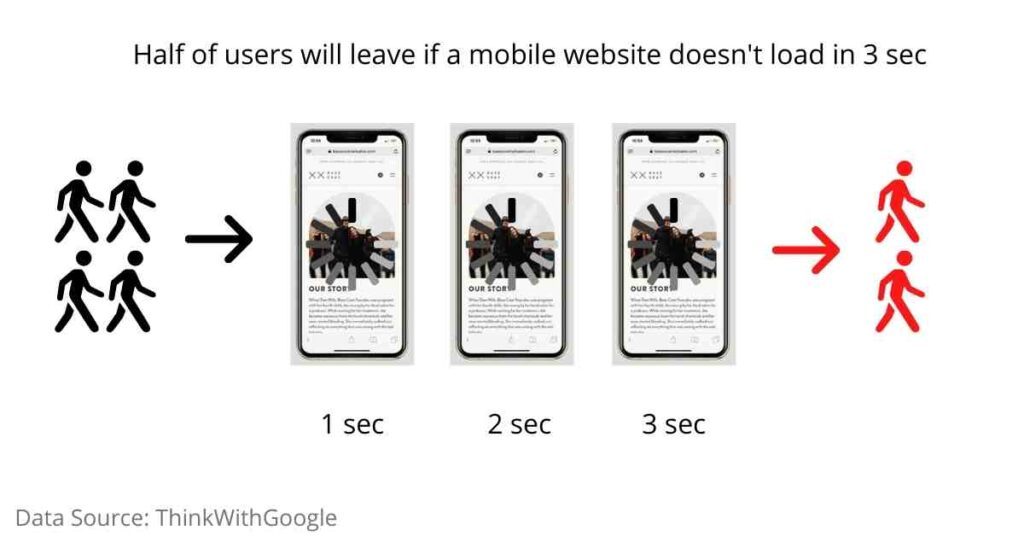
Small screens require that you limit content display to the essential items first.
For instance, one of Google’s core web vitals, Largest Contentful Paint (LCP), recommends that content above the fold of a smartphone loads within one second, and the entire page loads within the next 2 seconds.
Responsive design ensures you meet this requirement by serving appropriate image sizes for whatever device is used.
Take a look at your website analytics and focus on bounce rates. If you have a high bounce rate, there is a chance that your slow website is turning away potential customers.
To determine a website’s average page loading speed, use Google PageSpeed Insights and pay attention to mobile page speed.
Non-responsive design could be the root cause of poor analytics, and that is why you need a responsive website to enhance your digital marketing efforts.
4. It Helps with SEO Optimization
The most important goal for a website is to attract traffic, and many websites depend significantly on organic traffic to drive their online business.
However, attracting organic traffic can be the most challenging activity in any digital marketing campaign. Whichever industry you are in, there are hundreds of other businesses worldwide fighting for the same online customers you want.
Search Engine Optimization, SEO, is a critical strategy to improve your chances of ranking high and securing traffic from search engines.
So, why do you need a responsive website?
Because it contributes to SEO.
According to Statista, Google is the most dominant search engine with a 92.47% market share as of June 2021. It also invests the most resources and time in building its search engine to provide the most relevant results to users.
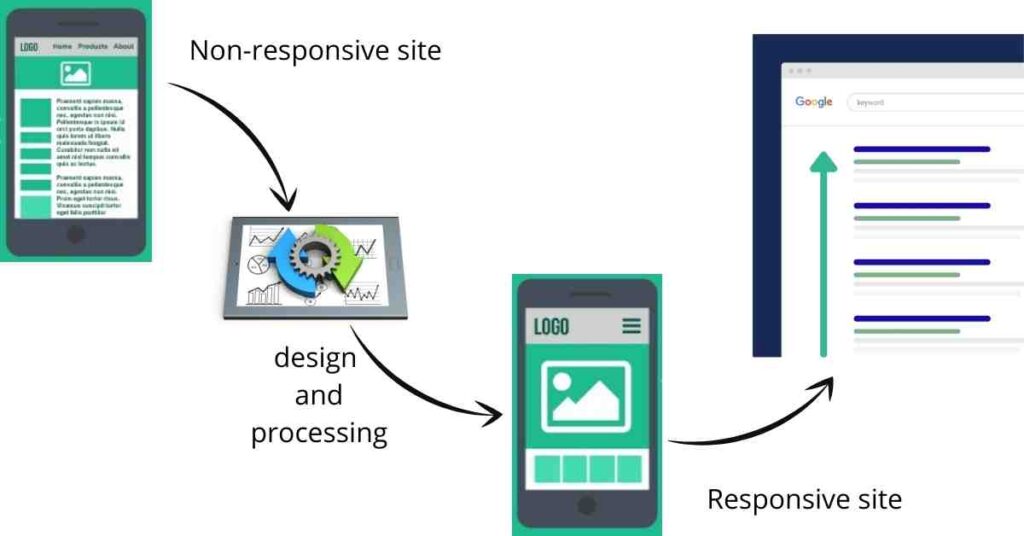
We can both agree that if you rank well on Google’s search results page (SERPs), you’ll command a significant percentage of organic traffic in your niche.
Google recommends responsive design because it offers the best user experience and conforms to their ranking criteria.
For instance, using responsive design means you’ll not have to create different web pages for computers vs for mobile devices, which have different URLs.
Hence, the authoritativeness and relevance of the URL is maintained, meaning your SERPs rank is almost similar from one device to another.
Estling Village invested in responsive web design of their website and realized an 89% increase in organic search traffic in addition to a significant increase in monthly sessions. A responsive website should be your first step in optimizing your website for Google.
5. It Safeguards Business Reputation
If none of the above main reasons why your business needs a responsive website is good enough to convince you, I sure hope this does.
One factor that customers greatly depend on to determine whether to do business with you is your professionalism.
A study by WebFX found that 94% of first impressions and 75% of judgments on a business’s credibility are based on web design.
A customer stumbles onto your website and comes across a disorganized page. The logo is halfway down the fold, and images expand beyond the screen; they need to zoom out to view. The font is large enough that it feels like it’s screaming on their faces.
What would such a visitor think about your business?

No matter how valuable your content is or how perfect your blog content strategy is, you cannot convince such a customer to buy from you. They see a lack of seriousness and don’t expect your services and products to be any better.
Since most people use smartphones to access the internet, do you see why you need a responsive website?
Will you be painting a professional picture to most of your customers if you fail to optimize your website design for mobile devices?
A responsive website is a necessity if you want your business website to be more impactful and rise above the competition.
It is non-negotiable if you want to offer your customers the best user experience but don’t want to invest in advanced web development technologies such as Progressive Web Apps and Single Page Applications.
Save your reputation through responsive web design.
Conclusion
Is your business website performing poorly on mobiles?
It could be because it is not optimized for mobile phones. These five main reasons why your business needs a responsive website should encourage you to take a step in redesigning your website for all devices.
At the same time, you cannot afford to put aside other business operations such as marketing, product development, and networking. They are equally as important.
We recommend that you let a web design expert take care of your website.
Our experienced web development team can transform your website into a responsive site where readers enjoy spending time. Book a free consultation here so we can discuss the way forward.
We look forward to helping you make more impact with your website.


